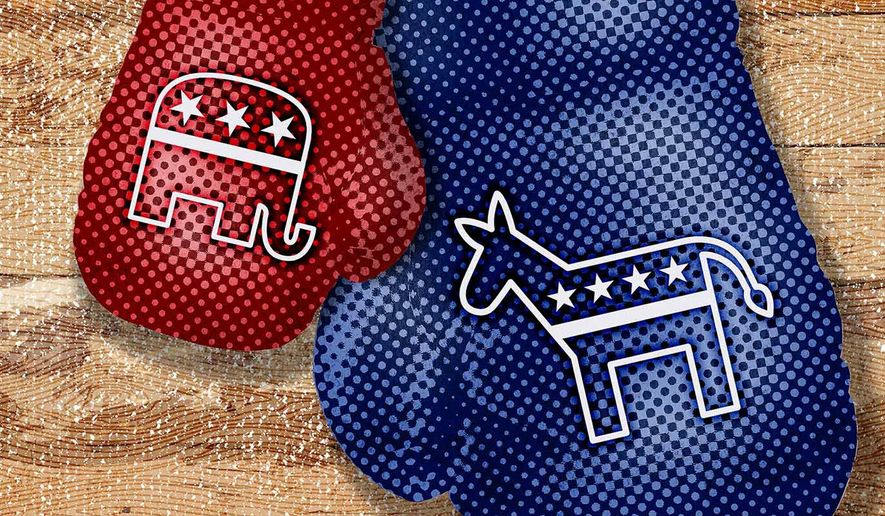OPINION:
In August, I retreat from the hurly-burly of the contemporary world to the relative peace and quiet of more serene times. This time, I retreated to the 1960s and to the presidential race that pitted then-Sen. John F. Kennedy against Vice President Richard Nixon.
I read Irwin Gellman’s very thoughtful “Campaign of the Century: Kennedy, Nixon, and the Election of 1960.” I recommend it. It abounds with fresh information on these two fascinating figures. For instance, I have always said that the conservatives have a weaker political libido than the liberals. The conservatives’ political libido is like that of a Victorian gent, very subdued, very modest. The liberals’ political libido is like that of a sex maniac. It is often out of control. Consider former President Bill Clinton. Consider Hillary Clinton. Moreover, the liberals have suffered this condition going back decades.
Reflect on this tidbit from Mr. Gellman’s book. It has rarely been written about. Billy Graham, the famous evangelist of the second half of the 20th century, was very much for Nixon in 1960, and he sat down with Henry Luce, the publisher of Time and Life and a dozen or so other publications, to ask Luce how he might help Nixon. Graham, the gentleman that he was, did not want to injure Kennedy, but he did want to go on the record as being for Nixon. Luce offered him space in Life magazine to make his case for the vice president. He wasted no time. Within an hour, Graham had hammered out his piece, showing his favoritism for Nixon. He claimed, “I’m not against Mr. Kennedy. I am simply for Nixon.” The piece was supposed to be published almost immediately.
Then all hell broke out. Somehow Kennedy got wind of what was afoot, and he angrily called Luce to demand equal time. He insisted that Luce open a page to a pro-Kennedy evangelist, say Reinhold Niebuhr or Norman Vincent Peale. As the controversy widened, more high-powered Democrats got in on the act, telephoning Luce, calling other influential journals, and making pests of themselves. Graham’s piece was delayed.
Finally, he published it, but it was a little different than originally planned. The piece was on the citizenry’s solemn duty to vote. There was no mention of Nixon in it. Even writers at Nixon’s headquarters who were consulted were intimidated by Kennedy and the Democrats’ telephonic barrage. As I say, the political libido of a Democrat is different than that of a Republican. That explains a lot of Democratic victories through the years. Even the evil Nixon had trouble competing with the Democratic libido.
I do not think it would be an exaggeration to claim that Graham’s experience with Luce and Kennedy was an early example of what we now recognize as the “cancel culture.” For years Democrats have not hesitated to pick up the telephone and complain to an editor about the coverage he or she was giving to a candidate. What is more, the nascent cancel culture has now spread throughout American society and it works.
I experienced it years ago. I used to delight in ridiculing liberals, especially in a liberal newspaper. Back in the 1980s, I filed this column with The Washington Post. One Monday afternoon, my editor, a very fine lady named Meg Greenfield, called me out of exasperation and told me I would have to resist the thrill of mentioning Ralph Nader, the famed consumerist and liberal activist, in my column because his acolytes were tying up the telephone lines at the Post with complaints about my column’s assaults on the sainted Mr. Nader.
Well, Greenfield was a great newspaper lady. What is more, she had a bawdy sense of humor. She often supplied me with naughty material for another column that I wrote for The American Spectator, and life would be much more banal without her contributions to my art. So, no more jokes about Mr. Nader or even his acolytes or even the Chevrolet Corvair.
The 1960 presidential race was filled with drama, but I bet you never read about how the strong liberal political libido played a role in winning the White House for Kennedy. Forget Kennedy’s sexual libido. His political libido made history in 1960, as the political libido of his party has been doing for years. You read it here first!
Glory to Ukraine!
• R. Emmett Tyrrell Jr. is the founder and editor-in-chief of The American Spectator. He is a senior fellow at the London Center for Policy Research and the author most recently of The Death of Liberalism, published by Thomas Nelson, Inc.




Please read our comment policy before commenting.